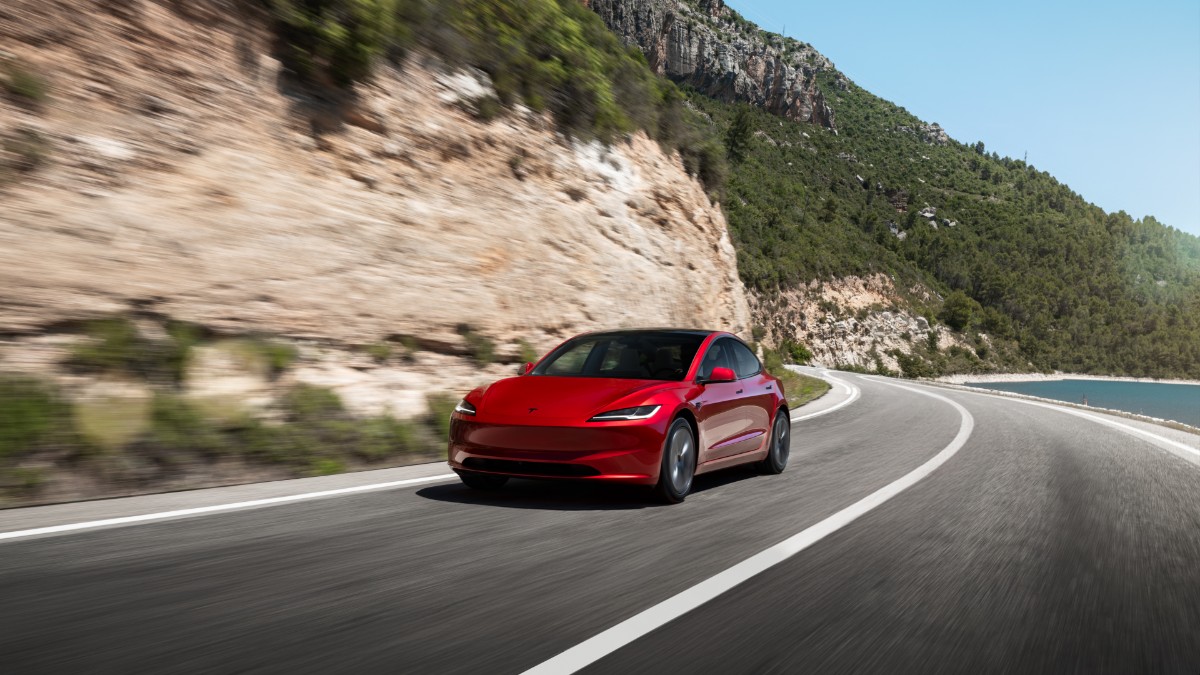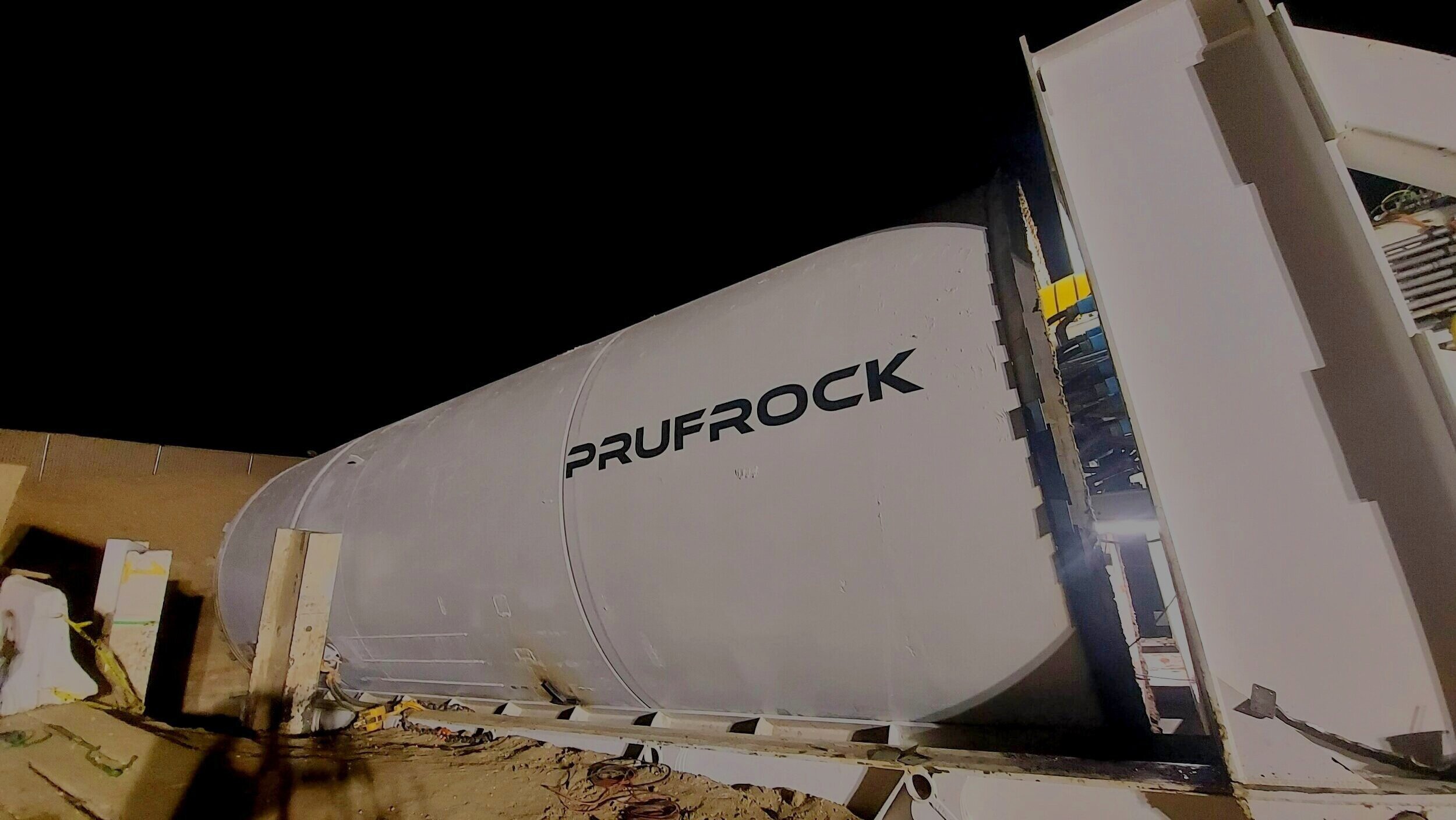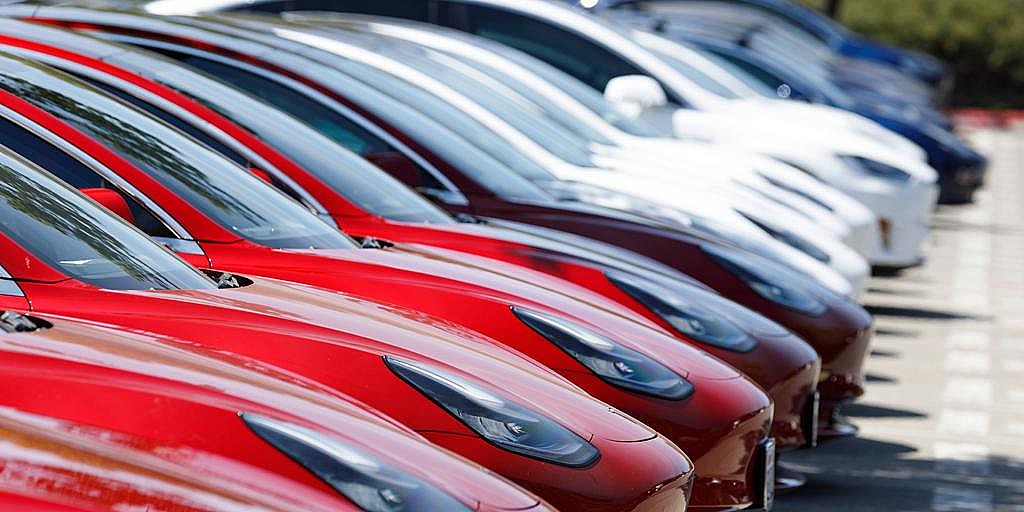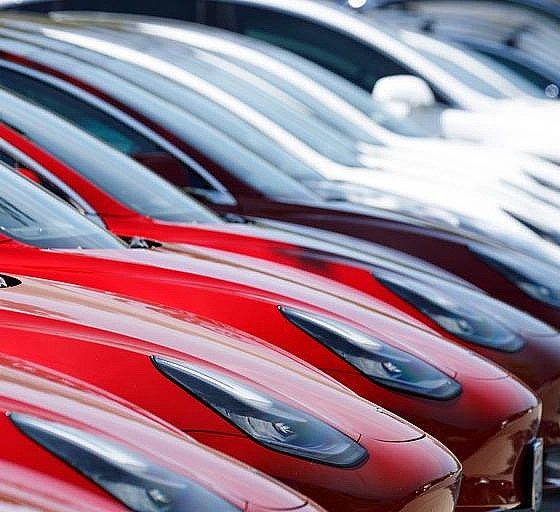J.D. Power’s annual U.S. Electric Vehicle Consideration (EVC) Study was released today, and it shows that more Americans said they are “very likely” to buy an electric car for their next vehicle now more than ever.
The study showed that 24 percent of respondents said they were “very likely” to buy an EV for their next purchase or lease, a 4 percent increase from a year ago. Several factors contributed to the increased interest in purchasing an EV, but the biggest contributor was the expansion of the electric pickup truck market, which was labeled “important” and “largely untapped.”
“The addition of new EV models has moved the needle on consumer consideration,” J.D. Power’s Senior Director of Automotive Retail, Stewart Stropp, said. “In fact, several new models from perennial mass-market brands are at the top of that consideration list. Even so, more remains to be done in terms of transitioning from early to mass adoption. Though the study findings show a shift in favor of EVs, about 76% of new-vehicle shoppers say they are not ‘very likely’ to consider buying one. With new EV model introductions coming at a rapid pace, automakers must continue their efforts to persuade more shoppers to give these vehicles a try.”
Living situations also attributed to whether people were considering an electric vehicle for their next car. People who owned their homes were much more likely to say they were “very likely” to consider an EV next, with 27 percent of respondents giving that response. Only 17 percent of those who rented their living quarters said they would consider an EV.
Charging infrastructure also played a substantial part in whether people were considering an EV. Thirty-four percent of people said they were unlikely to consider an EV gave this response because they said they lacked access to charging capabilities at home or at their place of work.
RELATED: See where your state ranks in EV preparedness
Interestingly, the study found that the respondents who drove more frequently than others were more likely to consider an EV. This is likely due to gas prices, which have skyrocketed in 2022. The study says:
“The study, now in its second year, finds that the more vehicle owners drive, the more they are likely to consider an EV. While daily commuters who are encountering higher fuel prices are logical candidates to switch to EVs, those who take frequent vacations and road trips might be assumed to be less likely to adopt EVs. But, like heavy commuters, heavy road-trippers have a higher EV purchase consideration tendency than those who use their vehicles less often for this purpose. It could be an indication that frequent drivers are increasingly seeing the advantages of EVs compared with their gasoline-powered counterparts.”
Hands-on experience also was a heavy factor, as only 11 percent of people who had never had any personal experience with an EV said they were “very likely” to purchase one as their next vehicle.
Additionally, 48 percent of current EV owners said they were “very likely” to purchase another EV for their next car.
I’d love to hear from you! If you have any comments, concerns, or questions, please email me at joey@teslarati.com. You can also reach me on Twitter @KlenderJoey, or if you have news tips, you can email us at tips@teslarati.com.

News
Tesla is making two big upgrades to the Model 3, coding shows
According to coding found in the European and Chinese configurators, Tesla is planning to make two big upgrades: Black Headliner offerings and a new 16-inch QHD display, similar to that on the Model Y Performance.

Tesla is making two big upgrades to the Model 3, one of which is widely requested by owners and fans, and another that it has already started to make on some trim levels of other models within the lineup.
The changes appear to be taking effect in the European and Chinese markets, but these are expected to come to the United States based on what Tesla has done with the Model Y.
According to coding found in the European and Chinese configurators, Tesla is planning to make two big upgrades: Black Headliner offerings and a new 16-inch QHD display, similar to that on the Model Y Performance.
These changes in the coding were spotted by X user BERKANT, who shared the findings on the social media platform this morning:
🚨 Model 3 changes spotted in Tesla backend
• New interior code: IN3PB (Interior 3 Premium Black)
• Linked to Alcantara-style black headliner
• Mapped to 2026 Model 3 Performance and Premium VINs• EPC now shows: “Display_16_QHD”
• Multiple 2026 builds marked with… pic.twitter.com/OkDM5EdbTu— BERKANT (@Tesla_NL_TR) February 23, 2026
It appears these new upgrades will roll out with the Model 3 Performance and Tesla’s Premium trim levels of the all-electric sedan.
The changes are welcome. Tesla fans have been requesting that its Model 3 and Model Y offerings receive a black headliner, as even with the black interior options, the headliner is grey.
Tesla recently upgraded Model Y vehicles to this black headliner option, even in the United States, so it seems as if the Model 3 will get the same treatment as it appears to be getting in the Eastern hemisphere.
Tesla has been basically accentuating the Model 3 and Model Y with small upgrades that owners have been wanting, and it has been a focal point of the company’s future plans as it phases out other vehicles like the Model S and Model X.
Additionally, Tesla offered an excellent 0.99% APR last week on the Model 3, hoping to push more units out the door to support a strong Q1 delivery figure at the beginning of April.
Elon Musk
SpaceX secures FAA approval for 44 annual Starship launches in Florida
The FAA’s environmental review covers up to 44 launches annually, along with 44 Super Heavy booster landings and 44 upper-stage landings.

SpaceX has received environmental approval from the Federal Aviation Administration (FAA) to conduct up to 44 Starship-Super Heavy launches per year from Kennedy Space Center Launch Complex 39A in Florida.
The decision allows the company to proceed with plans tied to its next-generation launch system and future satellite deployments.
The FAA’s environmental review covers up to 44 launches annually, along with 44 Super Heavy booster landings and 44 upper-stage landings. The approval concludes the agency’s public comment period and outlines required mitigation measures related to noise, emissions, wildlife, and airspace management.
Construction of Starship infrastructure at Launch Complex 39A is nearing completion. The site, previously used for Apollo and space shuttle missions, is transitioning to support Starship operations, as noted in a Florida Today report.
If fully deployed across Kennedy Space Center and nearby Cape Canaveral Space Force Station, Starship activity on the Space Coast could exceed 120 launches annually, excluding tests. Separately, the U.S. Air Force has authorized repurposing Space Launch Complex 37 for potential additional Starship activity, pending further FAA airspace analysis.
The approval supports SpaceX’s long-term strategy, which includes deploying a large constellation of satellites intended to power space-based artificial intelligence data infrastructure. The company has previously indicated that expanded Starship capacity will be central to that effort.
The FAA review identified likely impacts from increased noise, nitrogen oxide emissions, and temporary airspace closures. Commercial flights may experience periodic delays during launch windows. The agency, however, determined these effects would be intermittent and manageable through scheduling, public notification, and worker safety protocols.
Wildlife protections are required under the approval, Florida Today noted. These include lighting controls to protect sea turtles, seasonal monitoring of scrub jays and beach mice, and restrictions on offshore landings to avoid coral reefs and right whale critical habitat. Recovery vessels must also carry trained observers to prevent collisions with protected marine species.
Elon Musk
Texas township wants The Boring Company to build it a Loop system
The township’s board unanimously approved an application to The Boring Company’s “Tunnel Vision Challenge.”

The Woodlands Township, Texas, has formally entered The Boring Company’s tunneling sweepstakes.
The township’s board unanimously approved an application to The Boring Company’s “Tunnel Vision Challenge,” which offers up to one mile of tunnel construction at no cost to a selected community.
The Woodlands’ proposal, dubbed “The Current,” features two parallel 12-foot-diameter tunnels beneath the Town Center corridor near The Waterway. Teslas would shuttle passengers between Waterway Square, Cynthia Woods Mitchell Pavilion, Town Green Park and nearby hotels during concerts and large-scale events, as noted in a Chron report.
Township officials framed the tunnel as a solution for the township’s traffic congestion issues. The Pavilion alone hosts more than 60 shows each year and can accommodate crowds of up to 16,500, often straining Lake Robbins Drive and surrounding intersections.
“We know we have traffic impacts and pedestrian movement challenges, especially in the Town Center area,” Chris Nunes, chief operating officer of The Woodlands Township, stated during the meeting.
“The Current” mirrors the Loop system operating beneath the Las Vegas Convention Center, where Tesla vehicles transport passengers through underground tunnels between venues and resorts.
The Boring Company issued its request for proposals (RFP) in mid-January, inviting cities and districts to pitch local uses for its tunneling technology. The Woodlands must submit its application by Feb. 23, though no timeline has been provided for when a winning community will be announced.
Nunes confirmed that the board has authorized a submission for “The Current’s” proposal, though he emphasized that the project is still in its preliminary stages.
“The Woodlands Township Board of Directors has authorized staff to submit an application to The Boring Company, which has issued an RFP for communities interested in leveraging their technology to address community challenges,” he said in a statement.
“The Board believes that an underground tunnel would provide a safe and efficient means to transport people to and from various high-use community amenities in our Town Center.”










